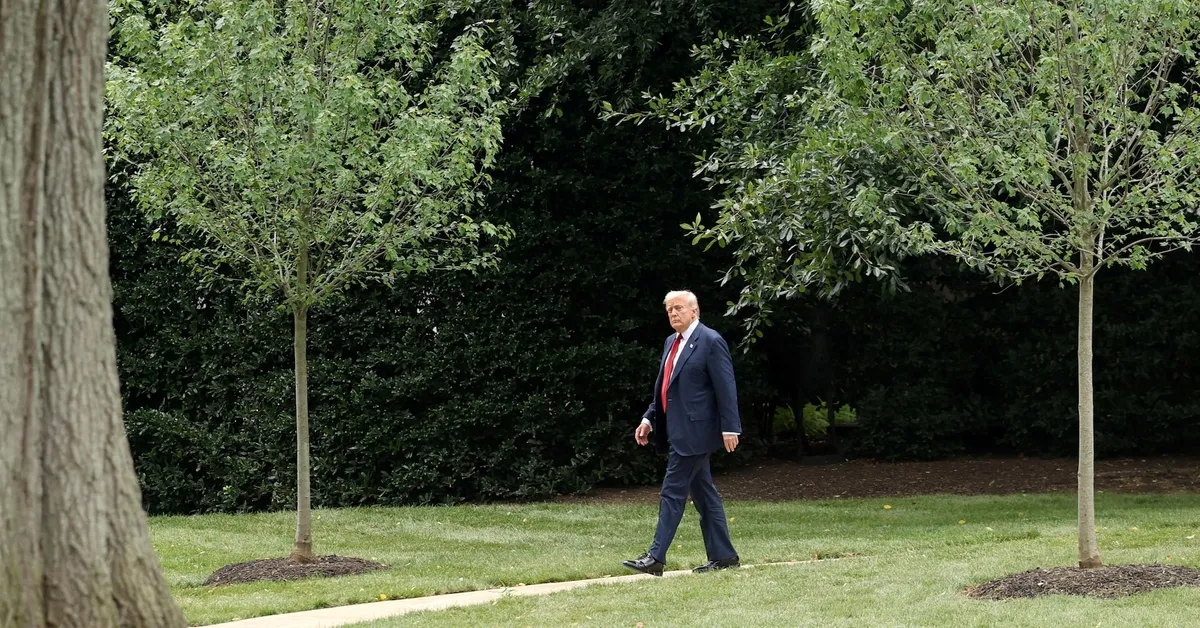
In late August, Pentagon officials engaged in a crucial discussion with a group of European diplomats, delivering a clear and concerning message regarding U.S. security assistance. The officials announced that the United States planned to reduce military support for Latvia, Lithuania, and Estonia, all of which are NATO members located near the Russian border. This significant shift was articulated by Pentagon official David Baker, who emphasized that Europe must become less reliant on the U.S. for security. Under the administration of President Donald Trump, the U.S. military intends to refocus its priorities towards defending its homeland.
The announcement sparked concerns among European diplomats, who feared that such a reduction in support could embolden Russian President Vladimir Putin. Their worries were seemingly validated on Friday when Russian MiG-31 jets briefly entered Estonian airspace for approximately 10 minutes before being intercepted by Italian F-35s. Russia, however, denied any violation, claiming its jets were operating over neutral waters. In a separate incident, Russian aircraft were reported to have approached a Polish oil platform, further escalating tensions in the region. The U.S. response to these provocations has been notably subdued, with Trump initially remaining silent for several hours before acknowledging the situation.
Trump's reaction aligns with a broader trend of reduced U.S. diplomatic involvement in global conflicts. After months of actively seeking solutions to various international disputes, including a ceasefire between Israel and Hamas, Trump has recently shifted his focus towards domestic issues, such as crime and immigration reform. This pivot away from global diplomacy raises questions about the U.S.'s commitment to its allies, particularly in Europe.
Despite an intense summer of diplomacy, where Trump hosted Putin and discussed sanctions on Russian oil, analysts suggest he is reverting to a more isolationist stance. Trump has previously expressed skepticism about U.S. military involvement abroad, arguing that the nation is overstretched. His recent behavior indicates a reluctance to engage unless there is a clear and tangible benefit, as noted by Aaron David Miller, a senior fellow at the Carnegie Endowment for International Peace.
Trump's fluctuating foreign policy approach has left European diplomats feeling exhausted and uncertain. In April and May, he hinted at disengagement from the conflict in Ukraine, only to re-engage later. While some U.S. military aid has recently been sent to Ukraine as part of the NATO security initiative known as the PURL program, the overall tone from the White House has been less assertive.
Many analysts worry that the U.S.'s muted response to Russia's provocations may only encourage further aggressive actions by Putin. As Alex Plitsas of the Atlantic Council notes, a lack of robust U.S. support could embolden Russia, making Europe appear weaker in the absence of American backing.
European diplomats express frustration with Trump's unpredictable stance on Russia. Initially, there was optimism following a NATO summit in June, where Trump praised European leaders and threatened sanctions against Russia. However, subsequent meetings, including a contentious summit with Putin, yielded little progress, particularly concerning Ukraine.
In a recent call with European partners, Trump criticized Europe for relying on U.S. assistance while continuing to purchase Russian oil. He suggested that Europe impose tariffs on countries like China and India to curb their Russian oil purchases, framing this as a prerequisite for U.S. involvement. This approach has raised concerns among diplomats, who fear that navigating the EU's bureaucratic processes for implementing such measures could be a significant challenge.
As the situation evolves, it remains uncertain whether the recent incursion into Estonian airspace will prompt a shift in Trump's policy towards Russia. The U.S. government appears largely unmoved by calls from Baltic lawmakers to reconsider the planned reduction in security assistance. A White House official noted that many European allies possess the resources to fund their own defense initiatives if they choose.
As the geopolitical landscape continues to shift, the implications of U.S. foreign policy decisions will significantly impact the dynamics between NATO members and Russia. The evolving relationship between the U.S. and its European allies will be critical in addressing the challenges posed by Russian aggression in the region.